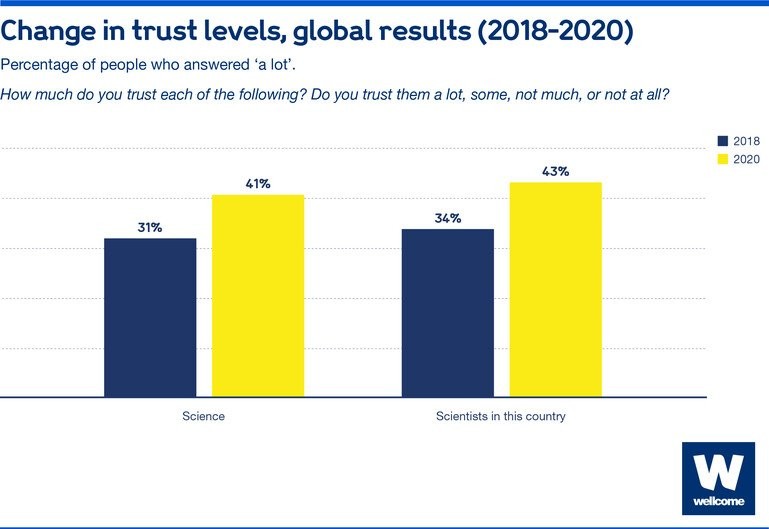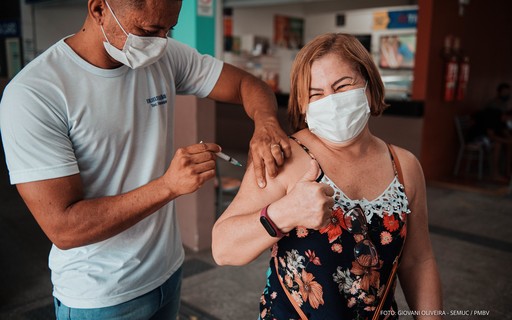
In the face of the pandemic, 80% of the world’s population says they trust science (Photo: Giovanni Oliveira/Semuc/PMBV)
The Covid-19 pandemic appears to have led more people to believe in science and scientists, according to the new report. Wellcome Global Monitor 2020: COVID-19, released on Monday (29). The Gallup World poll was conducted, and the monitoring found that 80% of people around the world trust “very” or “some” in science and 78% in scientists.
41% strongly believe in science, while 43% trust scientists who are now on an equal footing with doctors and nurses. The percentage is much higher (10 and 9 percentage points, respectively) than that reported in the same 2018 survey. “As the pandemic has brought science into more people’s lives, it is perhaps not surprising that their trust in science and scientists has risen so much,” thinks Lara Clements, campaign manager at Wellcome, in the statement.

The chart compares the percentage of people who answered “a lot” to the question “Do you have great, little, or no confidence in science and scientists?” (Photo: clone/welcome)
More than 119,000 people and 113 countries took part in the report, which attracted responses between August 2020 and February 2021, a period when a significant portion of the world’s population was interested in vaccine development and expected to receive newly approved vaccines at the earliest. Maybe.
Oceania was the region in which most people said they believed most in scientists (62%). In sub-Saharan Africa, the figure was only 19%. Eastern Asia has been the region that has seen an increase in confidence in two years: from 33% in 2018, it has risen to 49% this year.
in a Thing Published by Wellcome himself, Director Aaron Tolunay says his experience with HIV prepared him to look respectfully at the scientific evidence. “I really believe in science because it has saved our lives before,” says one UK resident.
Founder of In-Event London, it is also compared to the history of the virus that causes AIDS. “We had a lot of questions when the epidemic started [do coronavírus] first erupted. It was exactly the same situation, however, when HIV emerged during the 1980s and 1990s, no one knew it was a virus,” he recalls. Now, thanks to science, we have many treatments available and people living with HIV have expectations of normalcy.”
So essential to addressing public health challenges, governments were also one of the focal points studied in the survey. Overall, only a minority (25%) said that government leaders value scientific knowledge highly. The number was higher in areas where public trust in the government itself was higher.
In Latin America, for example, only 15% believe that governments consider the voice of experts to be loud. In Brazil, 43% of people think leaders have “a lot” or “some” consideration for the scientists’ experience, and 54% answered “not much” or “not at all.”

“Wannabe internet buff. Future teen idol. Hardcore zombie guru. Gamer. Avid creator. Entrepreneur. Bacon ninja.”

